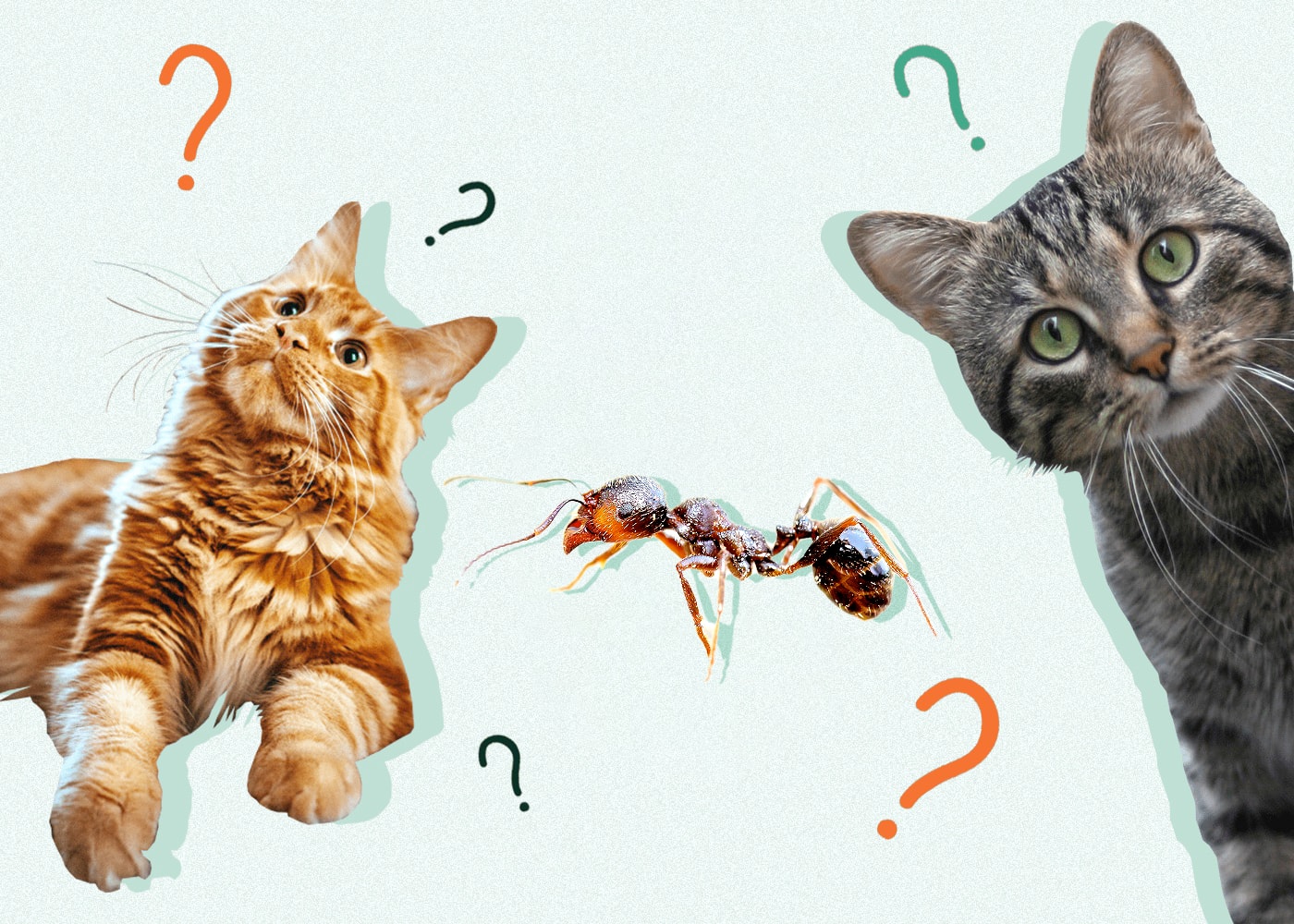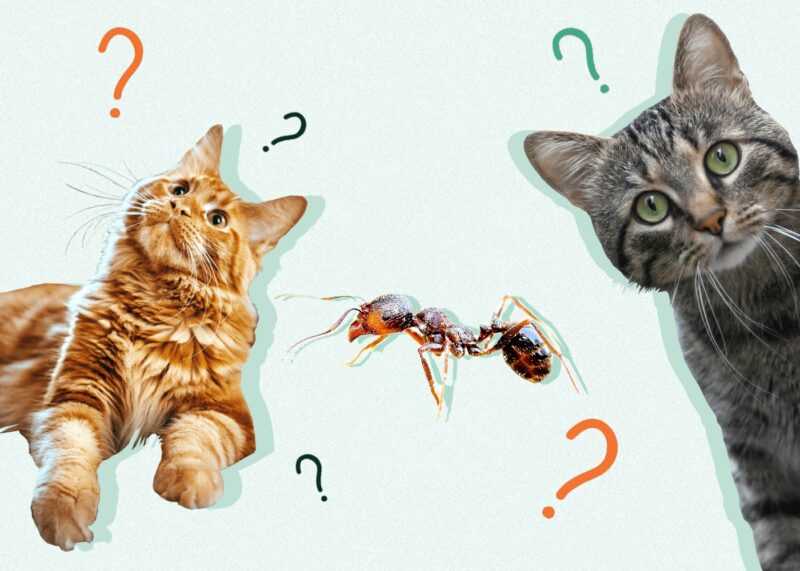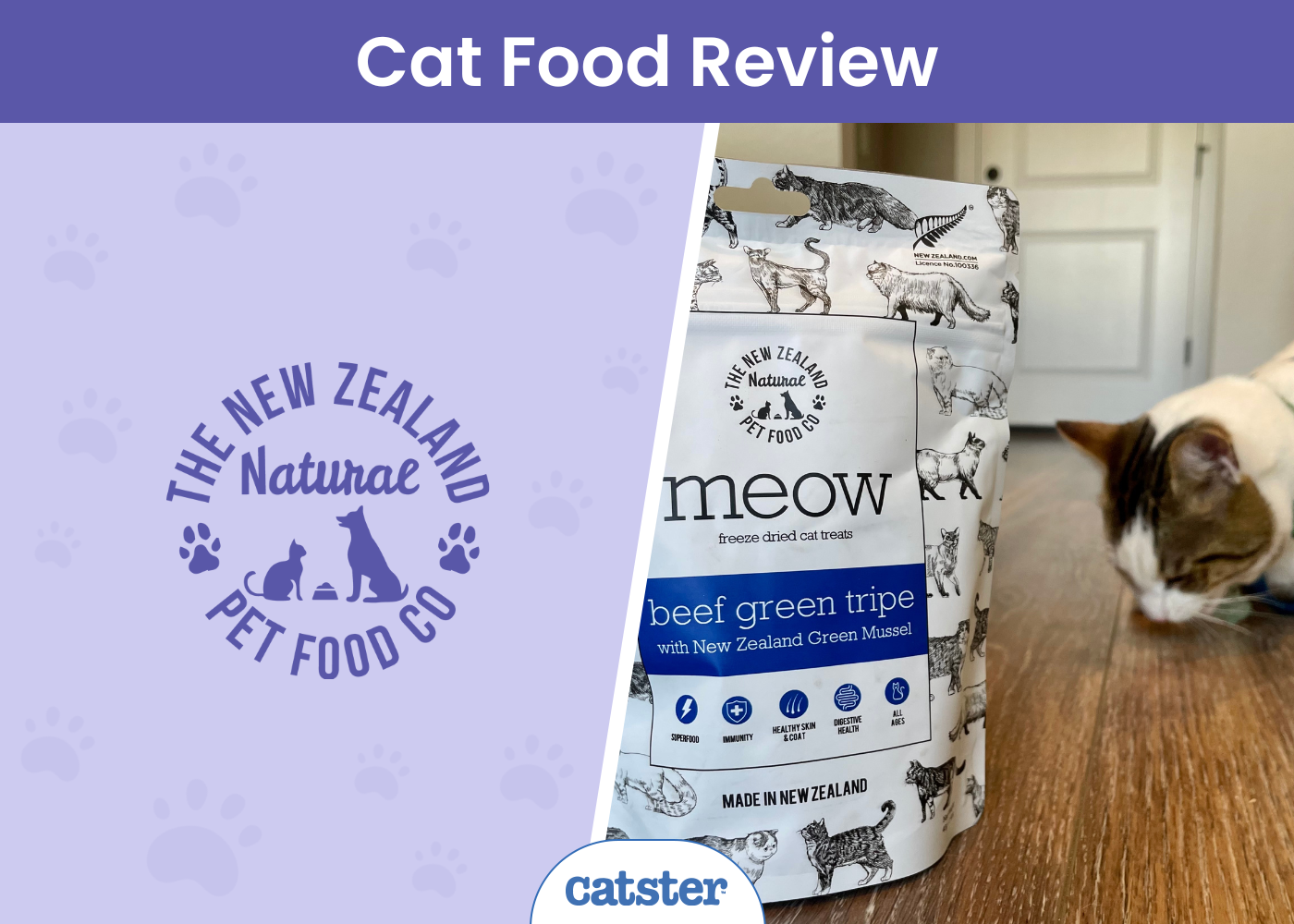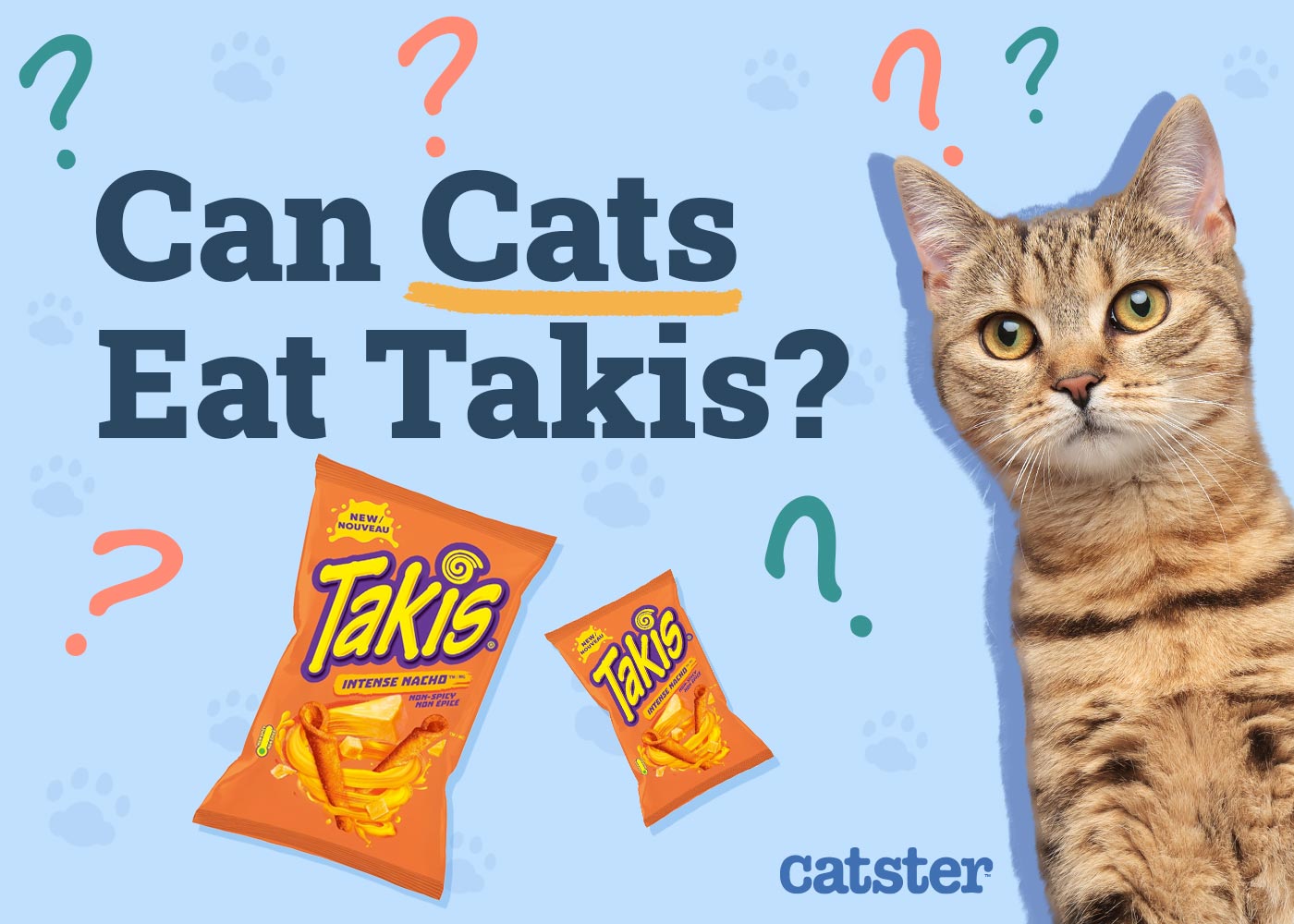If you’re a cat owner, you’ve seen your furry friend eat plenty of questionable things. It’s an instinct for cats, but it’s also an instinct for you to wonder whether what they’re eating is safe for them. Ants are common household pests that are drawn to cat food, so you’ve likely seen your cat eating ants, especially if you’re asking the question: are ants toxic to cats?
The answer is no. Ants are not toxic to cats, except for fire ants. It’s safe for your cat to eat black ants, and in fact, it might be healthy for them.
Let’s walk through what happens when your cat eats ants, what to watch for, and the reasons behind why they do it—the answer might surprise you!
Why Your Cat Eats Ants
Almost every cat will eat ants during its lifetime. If you have ants on your property, they will likely end up near your cat’s food. Not only will your cat be fine with consuming a few incidental ants with its meal, but they may even go out of the way to snack on a few.
Although felines are carnivores that enjoy high-protein meals, ants do not have enough meat to entice cats. The insects contain protein but not as much as a bird or rodent. Most cats love to hunt and chase bugs, but few housecats rely on them for sustenance. Your cat’s fascination with ants may be motivated by their need to hunt and play.
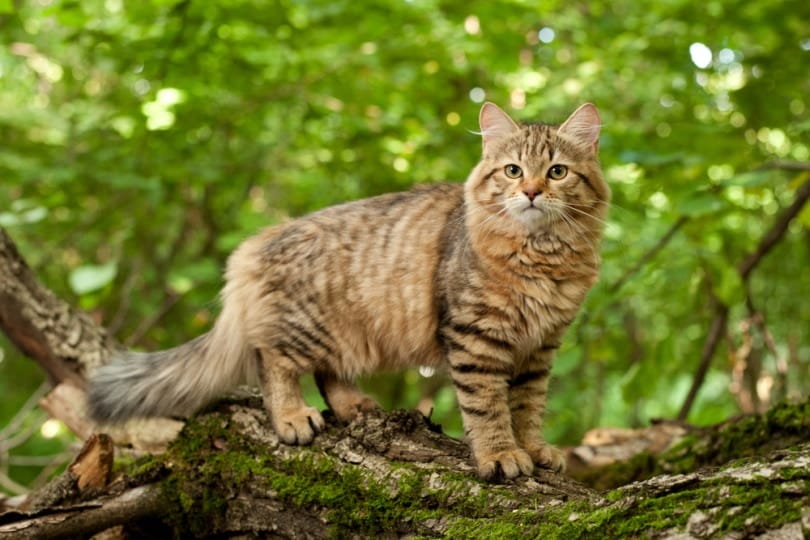
Is It Safe for Your Cat to Eat Ants?
If you notice your cat eating a few black ants here and there, you have nothing to worry about. Black ants are not poisonous. Plus, your cat is acting as a natural pest control that could reduce the number of ants crawling around your house.
However, as with all things, balance is key. If your cat is eating an excessive number of ants, even black ants, it may cause them to have some gastrointestinal discomfort. You may wish to find safe ways to control the ant population in your home if you notice this happening.
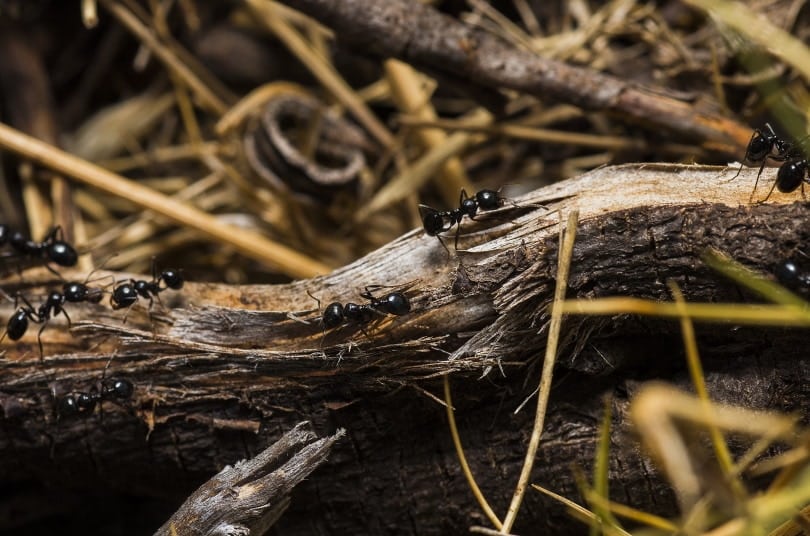
What Happens If Your Cat Eats Red Ants?
While black ants are safe for your cat to consume in reasonable amounts, red ants, also referred to as fire ants, are a different story.
The danger in eating fire ants comes from the possibility of the ant biting your cat in his mouth, throat, or stomach as it’s being eaten. If the ant succeeds in biting your cat, inside or out, it will inject them with a toxic substance called an alkaloid, which will result in an immediate blistering and stinging sensation.
A bite from a red ant can cause burning, swelling, and in some cases, a serious allergic reaction that has the potential to be fatal.
If you know your cat has eaten a red ant or is showing signs of an allergic reaction, call your vet immediately so you can assess whether you need to bring them in for care.
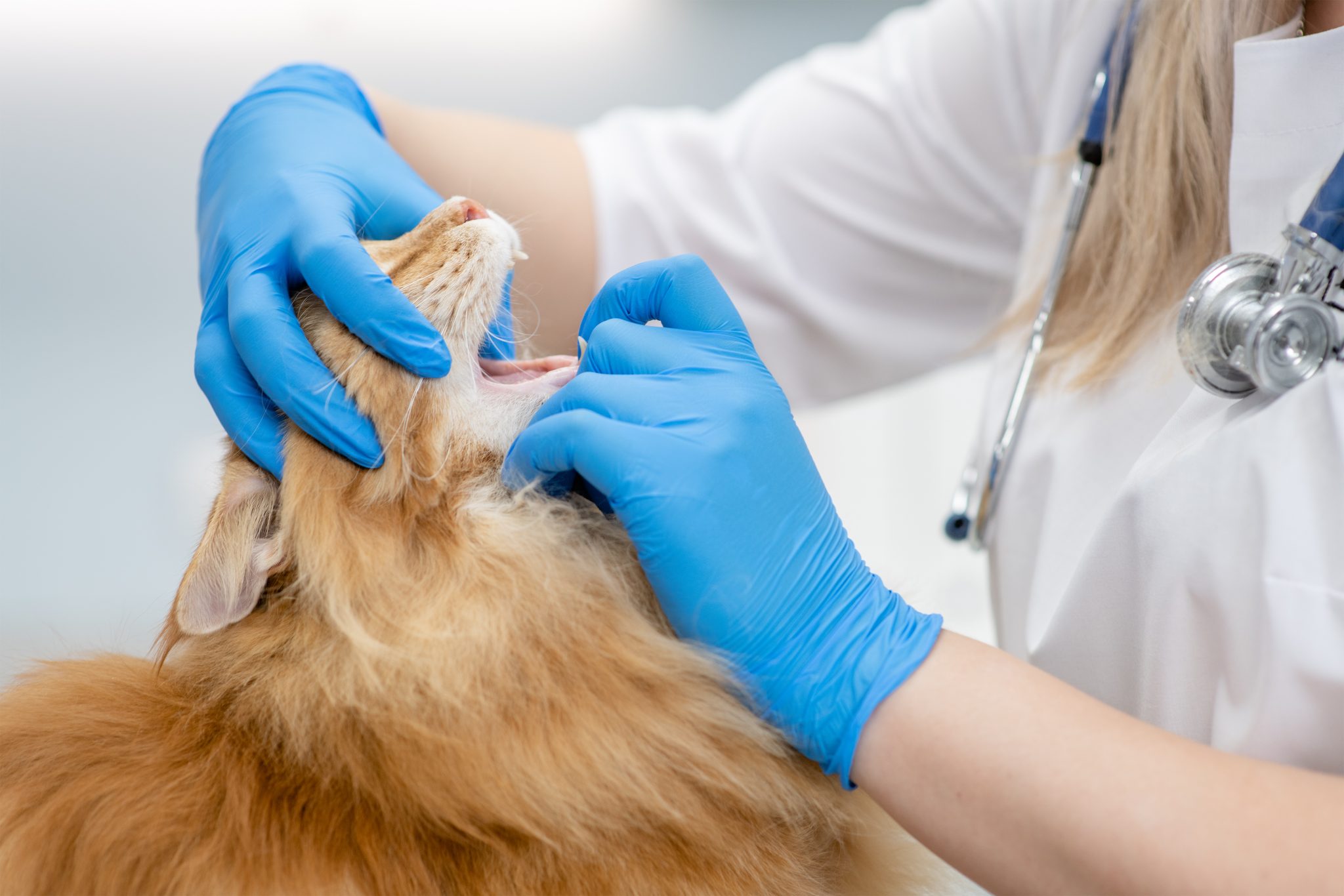
Cat-Safe Ways to Get Rid of Ants
While your cat might enjoy having ants around the house, you may be less enamored of them. If you want to eliminate the ant presence in your home, you’ll need to be careful how you go about it. Ants that have been exposed to insecticides or poison can be harmful to your cat when eaten.
If your cat has only eaten one or two ants affected by an insecticide, there will likely be no side effects. When your cat has consumed a large number of poisoned ants or been exposed to the insecticide himself, you may need to worry. If that happens to your cat, call your vet or the ASPCA poison control hotline right away.
The safest way to get rid of the pests without posing a risk to your cat is to use a pet-safe exterminator service or a device called an ultrasonic pest repeller. These devices use electricity to deter ants and other insects without harming your pets.
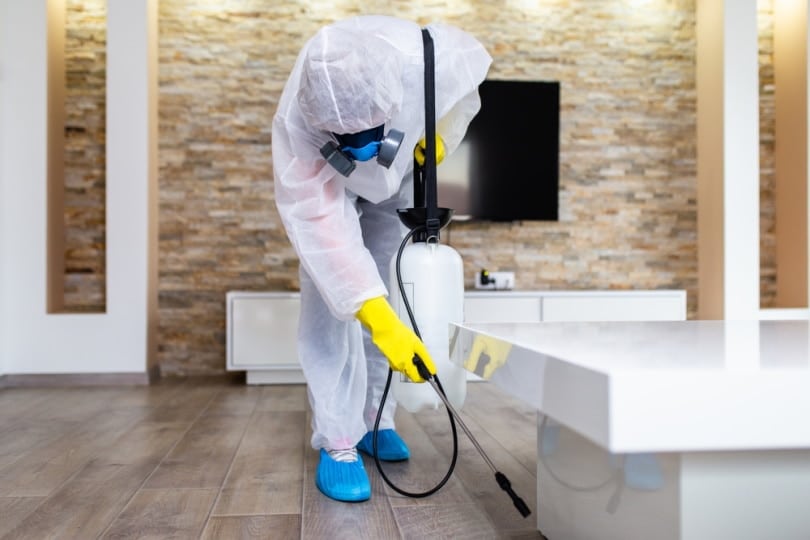
How to Keep Your Cat’s Food Ant-Free
If you’re concerned about how many ants your cat is eating, or if your cat is actually averse to eating their food because of an ant infestation, you may want to keep the pests out of their food entirely. Here are a couple of tips that will help protect your cat’s food from ants:
- Store food in an airtight container: Ants will be drawn to any crumbs or unsealed bags of cat food.
- Create a food bowl island: Setting up an impassable barrier around your cat’s food will be sure to stop ants from getting to it. You can do this by creating a moat, such as a tray filled with water, and placing the food bowl in the center. Another option is diatomaceous earth, a food-grade powder that can kill both ants and fleas but is safe for your cat if they happen to lick it.
- Move your cat’s food: Switching up the location of the food bowl can confuse ants, especially if they’re used to finding it in a certain spot.
- Keep the bowl clean: Washing your cat’s food bowl and sweeping the area every day will help clear out any ant infestations and prevent future ones.
Conclusion
Though it may seem counterintuitive to humans, eating black ants is harmless to cats. That being said, it’s essential to make sure that your cats don’t eat any fire ants they encounter and that you are exterminating ants in non-toxic ways to keep your kitty as safe as possible.
See also:
- 4 DIY Ant-Proof Cat Bowls You Can Make Today! (With Pictures)
- 11 Best Ant-Proof Cat Bowls – Reviews & Top Picks
Featured Image Credit: ArtLovePhoto, Shutterstock

